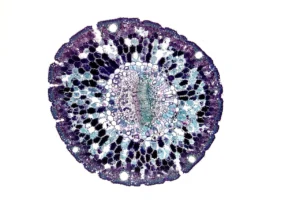
Soliris approved in China for the treatment of adults with neuromyelitis optica spectrum disorder (NMOSD)
The approval by the National Medical Products Administration (NMPA) in China was based on results from the Phase III PREVENT trial.1 In the trial, Soliris met the primary endpoint of prolonging the time to first adjudicated relapse and reducing the risk of relapse. At 48 weeks, 98 percent of patients treated with Soliris were relapse free compared to 63 percent of patients receiving placebo (relative risk reduction, 94.2%; hazard ratio=0.058; 95% CI: 0.017–0.197; p<0.0001).1 Additionally, 96 percent of patients treated with Soliris remained relapse free at 144 weeks during PREVENT compared to 45 percent of patients treated with placebo.1
NMOSD is a rare and debilitating autoimmune disease that affects the central nervous system (CNS), including the spine and optic nerves.2-4 Most people living with NMOSD experience unpredictable relapses, characterised by a new onset of neurologic symptoms or worsening of existing neurologic symptoms, which tend to be severe and recurrent and may result in permanent disability.5-7 The diagnosed prevalence of adults with NMOSD in China is estimated at approximately 27,000, based on extrapolation of available data.8
Xu Yan, MD, PhD, Chief Physician of the Department of Neurology, Peking Union Medical College Hospital and Deputy Leader of the Neuroimmunology Group of the Neurology Branch of the Chinese Medical Association, said: “The Phase III PREVENT trial established the safety and efficacy of C5 inhibition in reducing the frequency of relapses that can lead to severe and long-term disability for people living with NMOSD. With nearly all patients in the trial achieving relapse-free status at 48 weeks, today’s approval marks a fundamental shift in the care of NMOSD in China.”
Marc Dunoyer, Chief Executive Officer, Alexion, said: “Patients with NMOSD and their families should not have to live in fear of the next relapse and potential complications. We are proud to bring our first-in-class C5 inhibitor Soliris to the NMOSD community in China, reflecting our commitment to transforming the lives of people living with rare neurological diseases and expanding access to our medicines around the world.”
The safety and tolerability profile of Soliris in the PREVENT trial were consistent throughout both the primary treatment period and the open-label extension. The most common adverse events (AEs) were upper respiratory tract infection, headache, nasopharyngitis and nausea.9
Soliris is available in China for the treatment of adults and children with paroxysmal nocturnal haemoglobinuria (PNH) and atypical haemolytic uraemic syndrome (aHUS) as well as adults with refractory generalised myasthenia gravis (gMG). Soliris is also approved for multiple indications in many countries around the world.
Source link:https://www.astrazeneca.com/




